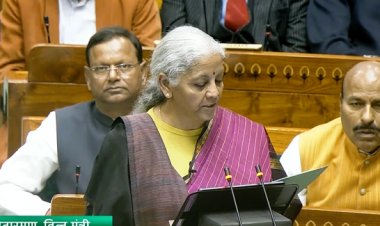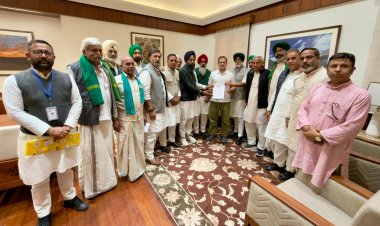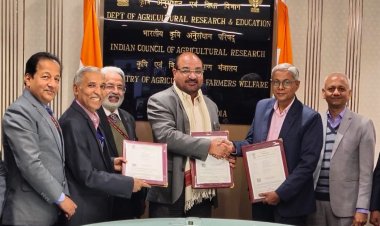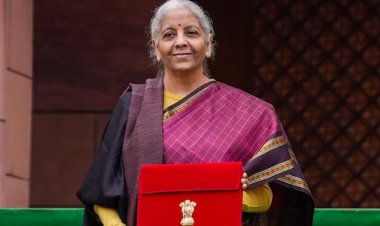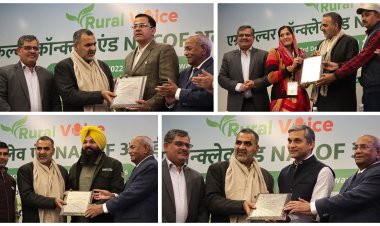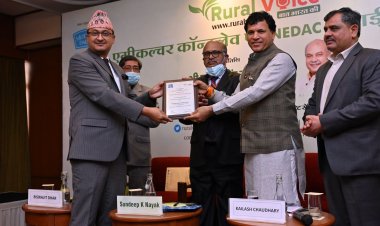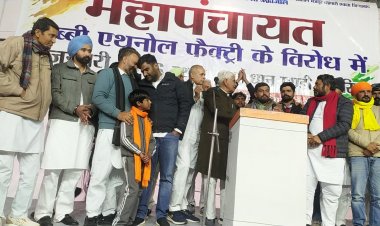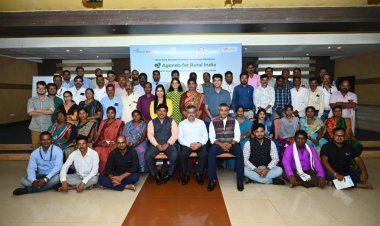'Viksit Krishi Sankalp Abhiyan' will not stop, KVKs to Be Nodal Agencies in Every District
As part of the initiative, 2,170 teams of scientists and agricultural experts visited over 1.42 lakh villages, directly engaging with more than 1.34 crore farmers.
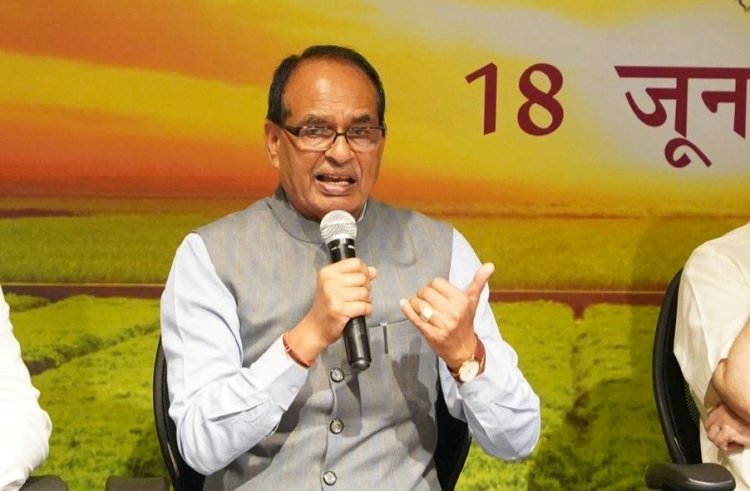
Union Minister of Agriculture and Rural Development Shivraj Singh Chouhan lauded the Viksit Krishi Sankalp Abhiyan as a highly impactful initiative that has achieved widespread success across the country. He emphasized that the campaign is not a one-time effort; rather, it marks the beginning of a sustained movement aimed at enhancing farmers' prosperity through direct field-level engagement.
As part of the campaign, 2,170 teams comprising scientists, officials, and agricultural experts visited over 1.42 lakh villages, directly interacting with more than 1.34 crore farmers. The initiative witnessed active participation from Chief Ministers, Union Ministers, State Ministers, Members of Parliament, MLAs, and a large number of grassroots representatives.
Addressing the media, Shivraj Singh Chouhan stressed the need to bridge existing gaps in knowledge, research, and institutional capacities. Krishi Vigyan Kendras (KVKs) will be designated as nodal agencies in every district and will operate as coordinated teams dedicated to addressing farmers’ needs. KVK scientists will now be mandated to spend at least three days a week in the field. The Minister also committed to visiting farms himself twice a week.
The press conference was also attended by Devesh Chaturvedi, Secretary (MoA&FW), Dr. M.L. Jat, Secretary (DARE) and Director General (ICAR), Dr Rajbir Singh, DDG, Extension (ICAR) and senior officials from ICAR and ministry of Agriculture and Farmers Welfare.
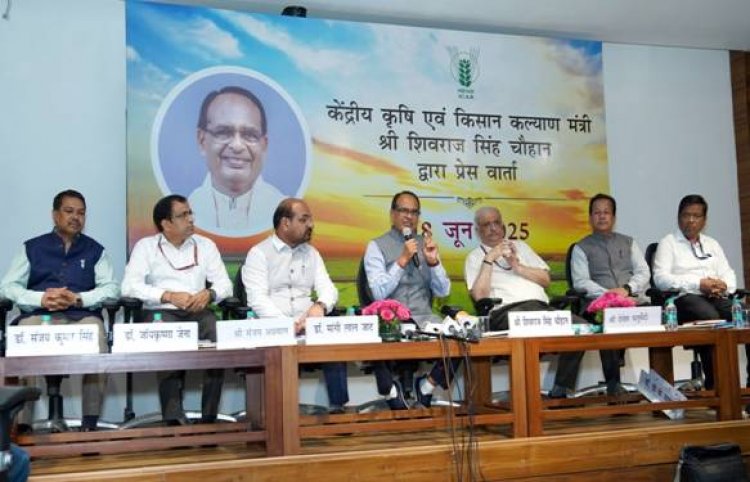
Field Engagement and National Coordination
Chouhan stressed that a true understanding of agricultural challenges cannot be achieved by sitting in air-conditioned offices. Therefore, field engagement will become a core operational priority. At the national level, he underlined the need for stronger coordination among all institutions working toward progressive agriculture and farmer prosperity.
Additionally, the Indian Council of Agricultural Research (ICAR) will appoint a state-wise Nodal Officer for agriculture. These officers will be responsible for overseeing scientific trials, identifying state-specific challenges, offering expert advice, and maintaining close communication with state governments.
Crackdown on Substandard Inputs
Highlighting concerns raised during the campaign, the Minister announced strict measures to strengthen the Seed Act and regulate the quality of seeds and pesticides. “We must increase productivity, reduce input costs, and make farming profitable and sustainable,” he said.
Rabi Relaunch and Action Plans Ahead
The Agriculture Minister praised the efforts of ICAR and the Ministry of Agriculture for the successful execution of the campaign and announced that it would be relaunched during the Rabi season. Additionally, targeted follow-up actions will begin with a dedicated Action Plan for soybean. A stakeholder consultation on soybean will be held on June 26 in Indore, followed by similar missions focusing on cotton, sugarcane, pulses, and oilseeds.
India’s 40% Rise in Foodgrain Output
Chouhan stated that under the leadership of Prime Minister Narendra Modi, foodgrain production has increased by 40% over the past 11 years—an outcome of consistent and strategic policy implementation. “Our mission is to ensure food security, nutritional availability, and profitable farming, while preserving soil health for future generations. India must emerge as a global food basket,” he said.
One Nation – One Agriculture – One Team
He introduced the vision of “One Nation – One Agriculture – One Team,” emphasizing the need for an integrated platform where farmers, scientists, institutions, and policymakers collaborate to achieve the common goal of developed agriculture and farmer prosperity.
Inclusive Outreach and Kisan Chaupals
The campaign emphasized inclusive outreach, with a special focus on underserved regions. In 177 tribal districts, over 8,000 programs were conducted. Additionally, 112 aspirational districts and nearly 100 border areas were covered. Kisan Chaupals facilitated meaningful dialogues on seed varieties, soil health, pest control, and crop planning.
Farmers’ Voice to Shape Policy
Farmers voiced key concerns, including the need for a climate change action plan, easier organic certification, a comprehensive fodder policy, and improved functioning of Farmer Producer Organizations (FPOs). Chouhan said that future agricultural policy must be farmer-led and field-tested. “The field is the most authentic laboratory, and the farmer’s voice must guide our path,” he concluded.
A national-level hybrid meeting is scheduled for June 24 at the Pusa Institute, where scientists, agricultural officers, and state agriculture ministers will review the outcomes of the campaign. Nodal officers will present comprehensive reports on state-wise agricultural conditions, laying the foundation for collaborative efforts between the Centre and the states.



 Join the RuralVoice whatsapp group
Join the RuralVoice whatsapp group


















